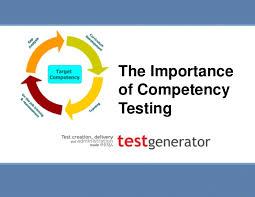Most wealth management firms rely on interviews for their recruitment process, which can be time-consuming and may not provide all the information about the candidate necessary to make a sound recruitment decision. In an interview, it may not be possible to assess if the candidates have all the skill sets required for the job or if they fit with the firm’s culture. Firms can save time and money and make the right hiring decision by using psychometric tools to help with the assessement process.
CEB SHL Talent Measurement Solutions, is a global leader in providing talent assessment tools and solutions. Managing director, YVL Pandit talks about identifying the right candidates for the right roles by use of appropriate competencies and testing for them. He says many leading banking and financial Institutions, including wealth management firms have used their tools in India and have experienced the benefits of having the right individual in the right role, such as higher employee productivity and lower attrition rates.
Competencies
“Competencies are essentially a set of behaviours that are required to deliver desired performance,” says Pandit. Competencies can be functional and behavioural – functional is essentially the technical knowledge while behavioural is the soft skills such as managing people or engaging with relevant stakeholders. Psychometric tools such as those provided by CEB SHL focus on assessing behavioural competencies.
“At the foundation of these behaviours are three personality aspects – cognitive ability, personality and motivation. And it is important to understand these about an individual to make a sound recruitment decision.” he says.
Cognitive ability is the ability to process, synthesise information in verbal or numerical form and come to conclusions. Personality includes aspects of how an individual deals with his / her emotions and feelings (e.g. openly expresses feelings or controls emotions); how he or she relates to people (e.g. likes to be with other people or prefers to be alone) and the thinking style (e.g. relies more on data or relies more on intuition) Motivation is about what motivates an individual to perform better and the drive to reach higher levels.
HR and line managers should decide the key competencies for each role.
SHL has developed a ‘Universal Competency Framework’ which has a list of 20 competencies. “It is like a dictionary of competencies, which can be used to decide the important or essential competencies for any given role,” says Pandit.
Once the competencies are decided, SHL can help with assessing the competencies and identifying those that are the individual’s strengths and the ones where he is likely to face a challenge. In effect, it is possible to assess if the individual’s strengths match the essential competencies required for the role.
Pandit says that it is not possible for an HR team in a company to develop these tools in-house as it would require specialist expertise in psychology, psychometrics and statistics. Tools have to be scientifically valid and reliable so that the assessments are fair and objective and can be defended, if necessary, in any legal situation.
Testing for competencies
There are different types of tools to assess competencies. Assessing cognitive abilities is done through online tests which assess verbal, numerical or, inductive abilities
On the other hand, personality assessments are done through questionnaires that provide an inventory of personality traits. SHL’s Occupational Personality Questionnaire (OPQ) profiles 32 personality traits. These traits provide a good insight into how a person is likely to behave in the work place. The Motivation Questionnaire provides insight into the factors that drive an individual’s performance. Pandit explained that another approach to assess competencies is through direct observation. An individual could be either given a role-play or a case study presentation. And based on his/her responses, experts can draw conclusions about their competencies
Relationship managers need empathy
When asked about which competencies wealth management firms should focus on when hiring relationship managers, Pandit said one cannot generalize. “Two banks operating in the same country look for different competencies depending on the maturity and business objectives of the organisation,” he said.
However, he admitted that a relationship manager would have similar traits to a sales manager. He also picked empathy as an important trait. “Relationship managers must be able to get into your mind, emphathize with a customer and accordingly communicate what the bank can do for you,” he opined.





You must be logged in to post a comment.